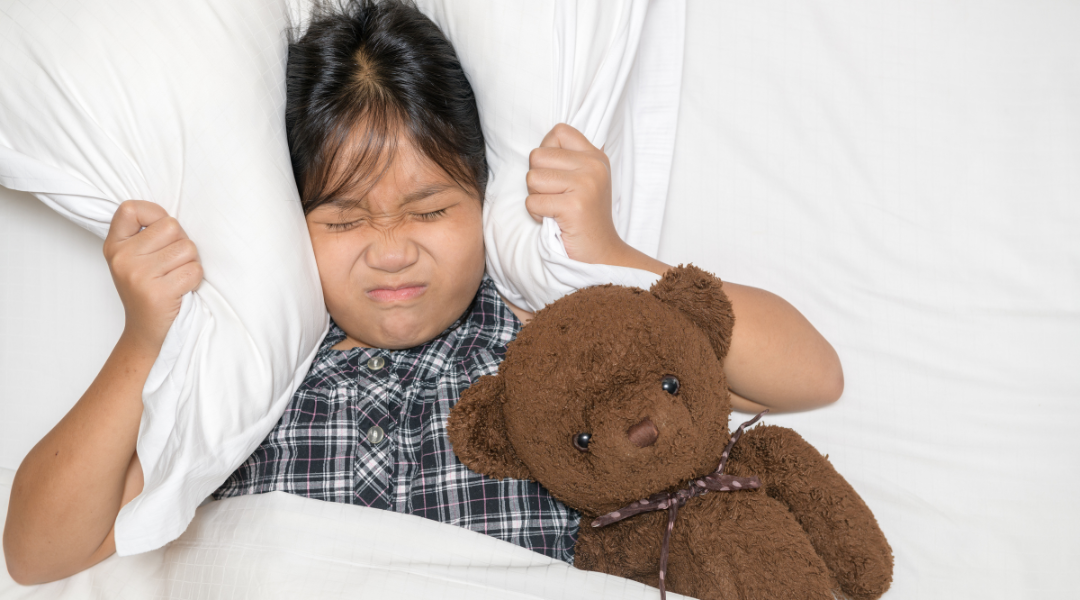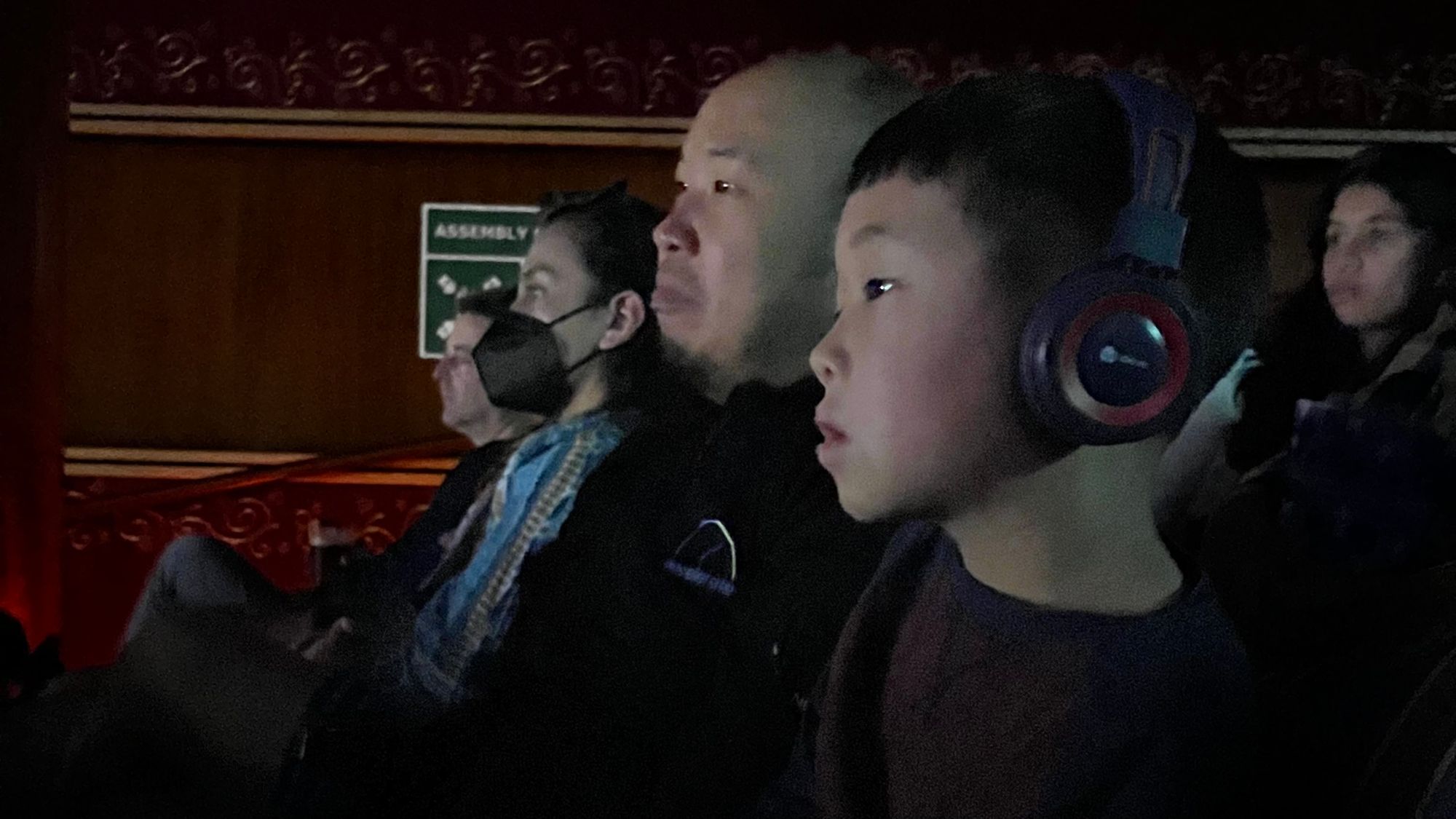Understanding Sound Sensitivity: Common Triggers and Support
Learn how the daily sounds of life can have a debilitating effect on individuals with extreme auditory sensitivities and how to overcome them.

In a world that seems to be getting louder by the day, some individuals find themselves overwhelmed by sounds that others might barely notice. From the explosive pops of fireworks to the rhythmic tapping of fingers on a desk, certain noises can trigger extreme emotional reactions in those who can't help but notice and be distracted by the sounds all around us.
Perhaps you or someone you love experiences auditory sensitivities, if so it's crucial to understand the condition and how to provide support. In this article, part 2 of the series for Sensory Processing Awareness month, I'll share some common triggers and practical ways to empathetically support our loved ones who are desperate for peace and quiet.
✋ Touch Sensitivity
👃 Smell & Taste sensitivity
👁 Visual sensitivity
⭐️ Sensory Seekers & Undersensitivity
Understanding Auditory Sensitivity
Have you ever been on a dinner date, and your companion's enthusiastic lip-smacking makes you contemplate turning your plate of food into a frisbee and lobbing it at their head? Take a deep breath, you're not alone, and it turns out there's even a fancy term for it: misophonia. Yep, that's Greek for "hatred of sound." Those who experience this all the time may have intense emotional responses, including anger, rage, and disgust, when exposed to specific auditory triggers.
Another kind of sound sensitivity is hypercusis, where everyday sounds seem unnaturally loud and cause discomfort. For example, the normal noises of a crowd in a restaurant, chatter, laughter, and clinking of glasses, may feel unbearably loud to the point of being physically uncomfortable.
Finally, if certain sounds cause an intense reaction of fear or anxiety, it may be a case of phonophobia. Imagine being at an amusement park. The sounds of roller coasters, screaming, and other exhilarating ride noises are always a part of the experience. While many people find these sounds exciting and thrilling, a person who is triggered by these sounds may become visibly tense, or distressed, possibly even leading to a panic attack.
Common Triggers for Sound Sensitivity
These triggers can vary widely from person to person but often include:
- Loud Noises: Sudden and jarring sounds can be particularly distressing for those with misophonia.
- Fireworks: While fireworks can be beautiful to some, the loud bursts can be unbearable for others.
- Music: Even though music is typically enjoyable, certain types or volumes can evoke strong negative emotions.
- Chewing and Crunching: The sounds of people eating, especially crunchy foods, can be incredibly irritating.
- Tongue Clicking, Tapping, Slurping, and Swallowing: Repetitive or close-proximity sounds during eating can be particularly triggering.
- Nail Filing: The sharp, high-pitched sound of nail filing can set off intense reactions.
- Chirping and Whistling: These seemingly harmless sounds can be tormenting for individuals with misophonia.
- Movie Theaters: The combination of loud movie soundtracks and unpredictable audience noise can be overwhelming.

How to Turn Down The Volume on Auditory Triggers
Auditory sensitivity is a common issue for those with OCD, Autism, Anxiety, Trauma, and Sensory Processing Disorders. Now that we've identified some common triggers for those with super sensitive hearing, let's explore practical ways to accommodate and support those dealing with this issue.
This article contains affiliate links to products I feel good about endorsing, meaning I may earn commission from qualifying purchases. Check disclaimers for more info.
Noise-Canceling Devices
Investing in noise-canceling headphones or earplugs can be life changing for someone with misophonia. These devices effectively block out or reduce unwanted sounds, giving individuals more control over their auditory environment. When attending events or places where loud noises are expected, these tools can offer a sense of relief. You can get over the head earmuff type headphones or if you want to try something more discreet (and your child's ears are big enough), Loop makes noise reducing earbuds designed for ages 6+.

A Night at the Theatre
Going to the theater, whether for the movies or on Broadway, can be a daunting experience due to the often unpredictable noise levels. Some theaters offer special sensory screenings of current movies where they lower the volume, turn the lights up, or they may offer special headsets for the hearing impaired that allow you to adjust the volume of the movie to a comfortable level (call ahead to see if your theater offers this).
Here in NYC, the same organization that brings discount theater tickets to the masses, Theater Development Fund (TDF), also presents a select number of sensory friendly performances on Broadway. Check out the current season here: TDF Autism Friendly Performances.
Around the Dinner Table
Dining out at restaurants often means a lively atmosphere that can be particularly difficult to process as the day wears on. When we have to eat out, we either try to limit dining out to lunches or early dinners before the evening rush, or we might order takeout or delivery so that we can avoid the bustle altogether. If wearing earphones or earplugs helps your loved one enjoy family meals with less distress, consider allowing them to do so. At home, playing some soft background music to muffle out the sounds of chewing and crunching can also sometimes help create a more pleasant dining experience for everyone.
Fostering Understanding
Families and friends play an important role in supporting loved ones with any sensory processing sensitivities, and it's no different with misophonia. It might be tempting to dismiss the discomfort, "It's not that loud," or "Look how much fun other people are having!" But this approach will only speed you down the path towards a meltdown.
Instead, try validating what they are experiencing, "You're right, there are a lot of different sounds here, and I can see that you are uncomfortable." Then look for ways to provide support, whether it means looking for a quiet place to take a break, or even cutting an outing short to go home and reset. Encourage children to identify what sounds are triggering for them. And also develop awareness for when they might be nearing their limit and need to step away or put in ear plugs to prevent sensory overload.
Treatment for Sound Sensitivities
If you or someone you know grapples with auditory sensitivity, it's recommended to consult with an audiologist for an accurate diagnosis and a customized treatment plan. It might be tempting to avoid and escape from sound triggers, but in the long run that could prove to be more harmful, heightening sensitivity and intensifying negative response. While the support and accommodations discussed earlier offer immediate relief, it's may be helpful to consider auditory and psychological interventions that can deliver longer-lasting benefits.
This video from Therapy in a Nutshell is particularly informative as it delves more into these three distinct sound sensitivity types. It also covers therapies aimed at desensitization and offers valuable techniques for calming oneself when faced with triggering sounds.
Auditory Sensitivity and Mental Health (Therapy in a Nutshell)
Auditory sensitivity is a challenging condition that can significantly impact the lives of those who experience it. By recognizing common triggers and implementing simple accommodations, we can create more inclusive and supportive environments for our loved ones with auditory sensitivities. Small changes can make a big difference in helping individuals lead happier, more comfortable lives. So, let's lend a sympathetic ear and make the world a little quieter and kinder for those who need it most.




Comments ()